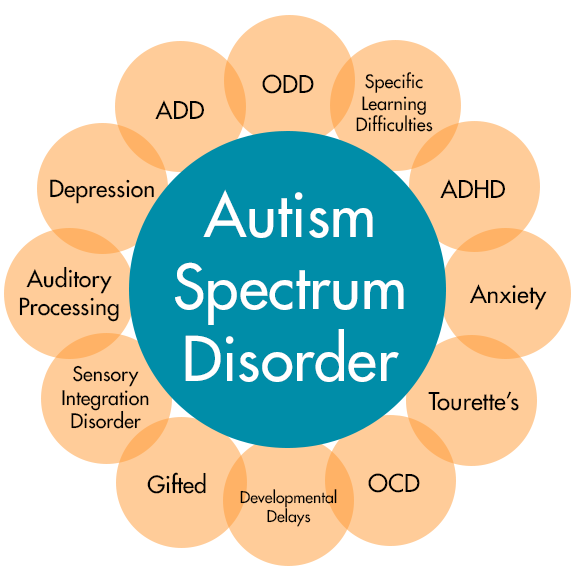


Autism is a complex neurological disorder detected in children in their initial three years of life, which is the result of the impaired functioning of the brain, expressing itself in the form of the inability for social and communication skills, impaired intellectual faculty and hence affecting the developmental of the child. The exact cause of autism is not yet fully understood.
Estimated 1.5 million American children and adults, over 1.7 million children in India and about 0.2% of the world population is affected by this disorder, affecting all races almost equally.
There are structural and functional changes in the brain in the patients with autism. However, the exact cause of these changes is not fully understood.
Some of the triggering factors considered responsible for Autism are:
Autism can present with a wide spectrum of symptoms, also in varied severity, mild, moderate to severe. The symptoms may present in different combinations. The major symptoms related to:
The common end symptoms could be some or many of the following:
It may be noted that autism affects the developmental of the intellectual faculties. The autistic children are able to express love and affection and also can respond to love.
There are no laboratory tests for autism. The diagnosis is arrived at by clinical evaluation and a detail developmental case history of the child. The psychological evaluation may be carried out by a professional with expertise in handling such cases. There are several Autism screening tests to conclude the diagnosis.
The theory is that some people with autism cannot properly digest gluten and casein, which form substances that act like opiates in their bodies. This "drug" substance alters the person's behavior, perceptions, and responses to his environment, according to this theory. Research in the U.S. and Europe has found substances with opiate activity in the urine of a significant number of children with autism.
Some parents, doctors, and researchers say that children have shown mild to dramatic improvements in speech and/or behavior after a gluten-free, casein-free (GFCF) diet.
Gluten and gluten-like proteins are found in wheat and other grains, including oats, rye, barley, bulgar, durum, kamut and foods made from those grains. They are also found in food starches, semolina, couscous, malt, some vinegar, soy sauce, flavorings, artificial colors and hydrolyzed vegetable proteins.
The homeopathic approach to handling chronic disorders being totalistic and aiming at treating the genetic tendencies with a well strategic management offers effective treatment for autism and related disorders.
The homeopathic case evaluation of the child with autism incorporates the detailed study of the family history of serious diseases, which are known to form the genetic ground for autism. The case analysis also takes into account impaired functions in terms of behavior, social skills, communication, speech, tantrums, etc.
The commonly homeopathic medicines indicated for autism are about twenty in number. The exact medicine, its combination with other support medicines, its dose and repetition depend on the case history. The medicines are essentially safe and absolutely non-toxic.
In our study at our center, we have observed encouraging results in autism children when treated with homeopathy for over six months. The treatment may require being continued for over one year, depending on the severity of the presentation. The homeopathic medicines can be combined with other traditional measures.
